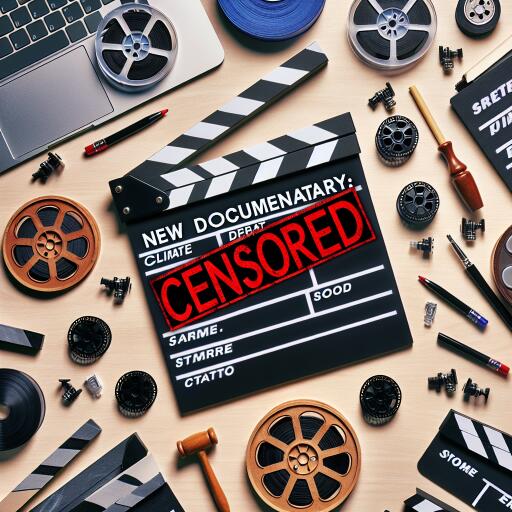
New Documentary Targeting Climate Alarmism Faces Censorship by Big Tech
In recent developments, a documentary critical of mainstream climate change narratives has encountered censorship from major tech platforms, raising questions about free speech and the role of tech corporations in public discourse. The film, titled “Climate: The Movie (The Cold Truth),” presents a viewpoint that challenges the consensus on climate change, suggesting that fears surrounding the issue may be exaggerated for financial gain and increased control by global entities.
The film faced its first obstacle when Vimeo, a popular video hosting service, temporarily deleted it citing a breach of their service terms and guidelines. The removal resulted in backlash and discussions regarding the motivations behind such censorship. According to the film’s creator, the documentary was reinstated approximately 12 hours after the issue was raised, although the reasons for its initial removal and subsequent restoration remain unclear. It was speculated that environmental advocates might have protested against the film, prompting automatic actions by Vimeo, which later reversed the decision.
YouTube, another major platform owned by Google, also restricted the documentary’s reach. Initially, a channel that attempted to share the movie had its upload removed swiftly but managed to post it again after obtaining special permission. Upon reupload, YouTube imposed a “context” warning on the video, attempting to reframe the discussion by asserting that “Climate change refers to long-term shifts in temperatures and weather patterns,” and highlighting the predominant view that human activities, especially fossil fuel combustion, are the primary contributors to global warming. This statement was accompanied by a link directing viewers to further information on climate change hosted by the United Nations.
Furthermore, YouTube’s approach to injecting context into controversial topics isn’t new. The platform has previously applied similar warnings to content discussing a range of disputed subjects, from the effectiveness of COVID-19 lockdowns and vaccines to pro-life advocacy, reflecting a broader trend of tech platforms curating information and potentially influencing public opinion.
In contrast, X (formerly known as Twitter), a platform that has recently been vocal about protecting free speech, has not implemented any restrictions on sharing or discussing the documentary. This stance aligns with the platform owner’s public commitment to fostering an environment where diverse perspectives can be shared without fear of undue suppression.
The actions taken by Vimeo and YouTube against “Climate: The Movie (The Cold Truth)” underscore a growing concern about the power of Big Tech to moderate content deemed controversial. This incident serves as a critical reminder of the ongoing debate over the balance between curbing misinformation and preserving free expression within the digital public square. As society grapples with these challenges, the role of major tech companies in shaping discourse around critical issues like climate change remains a topic of significant importance and contention.





Leave a Reply